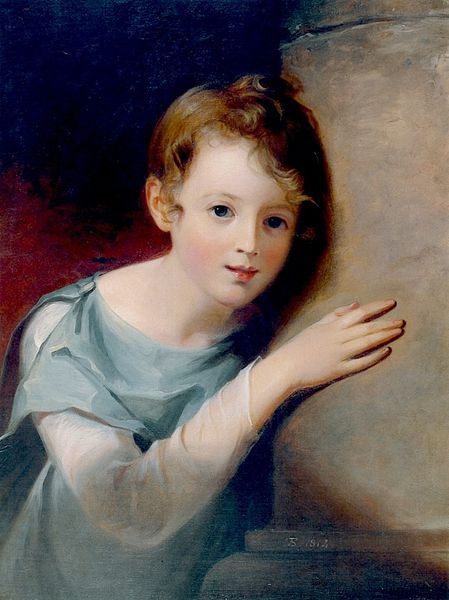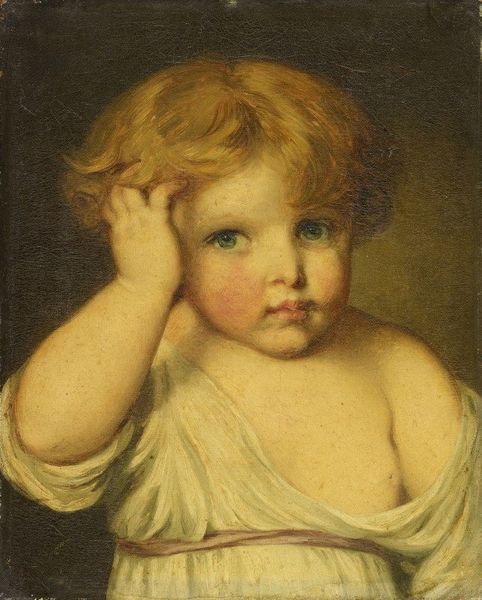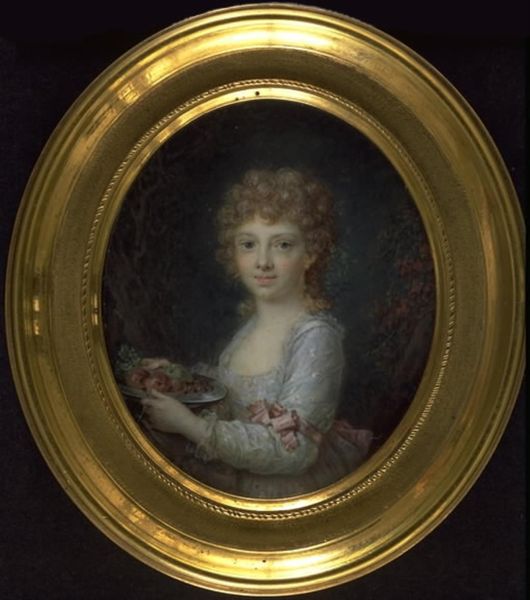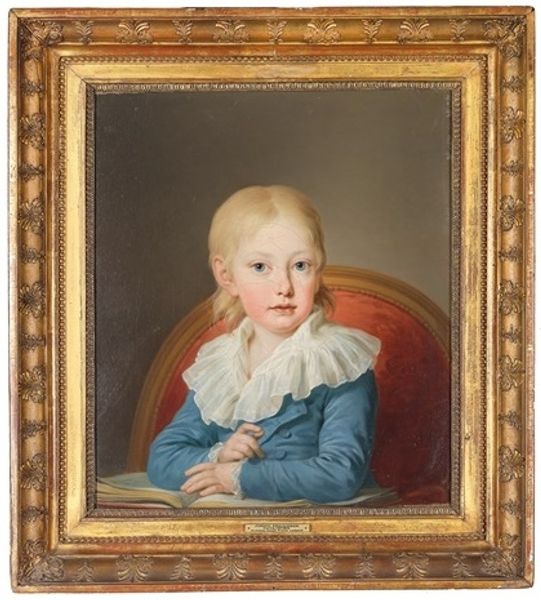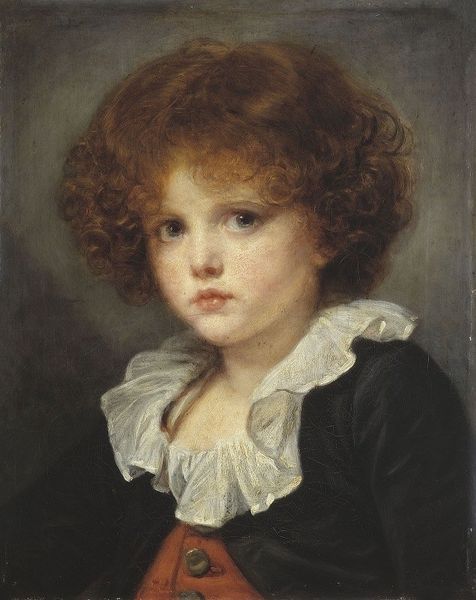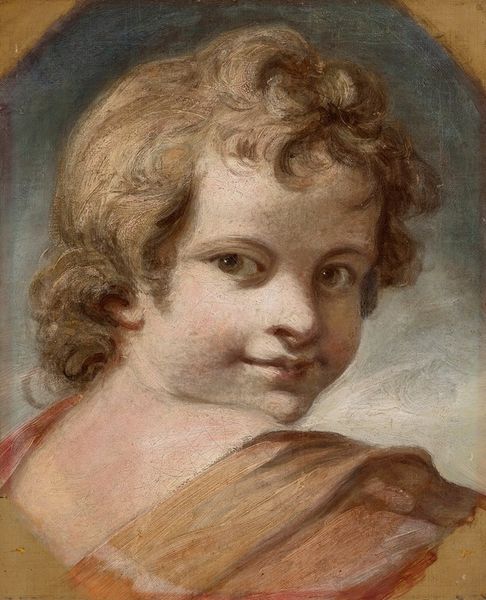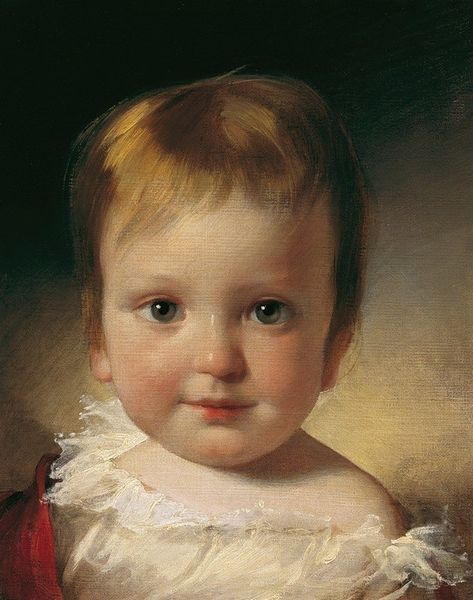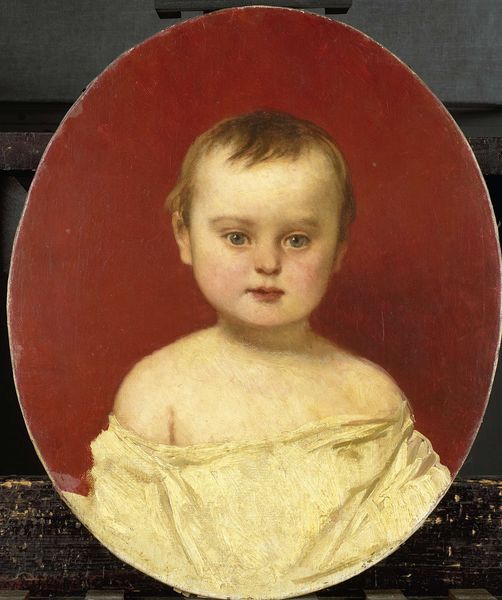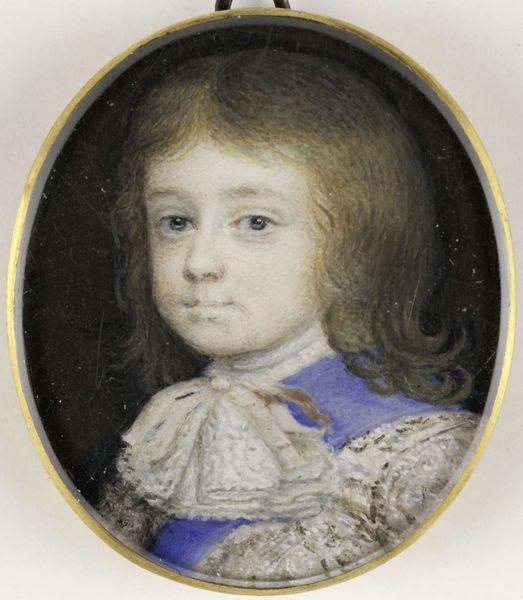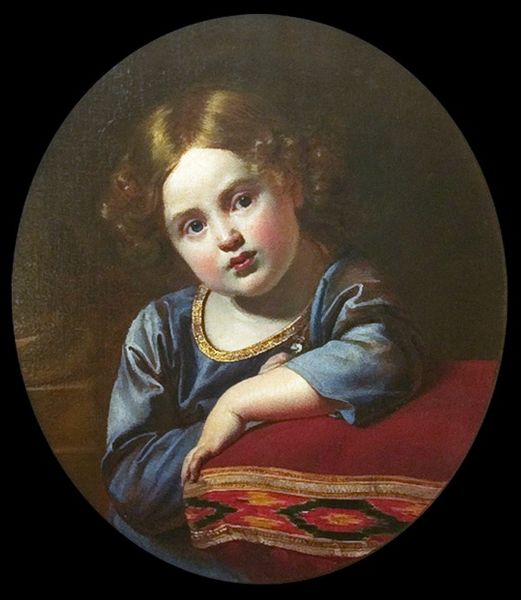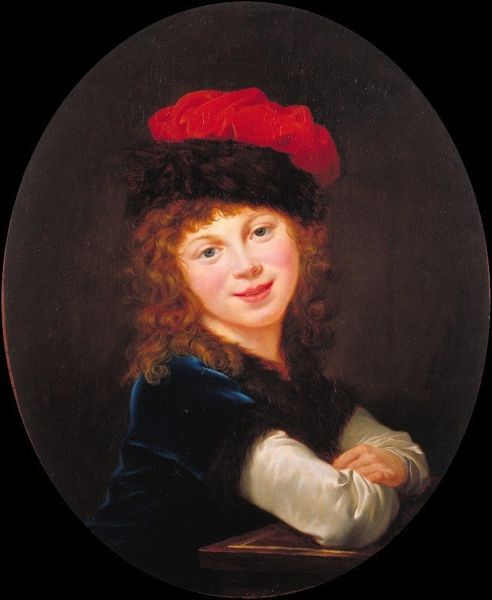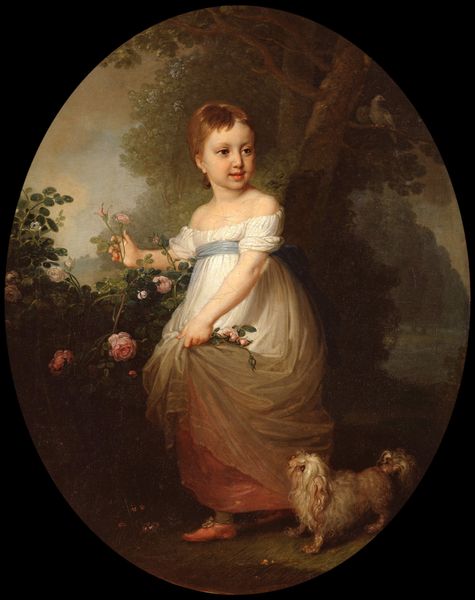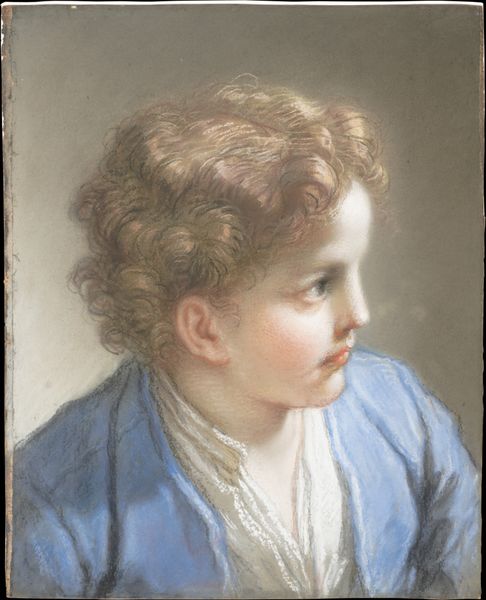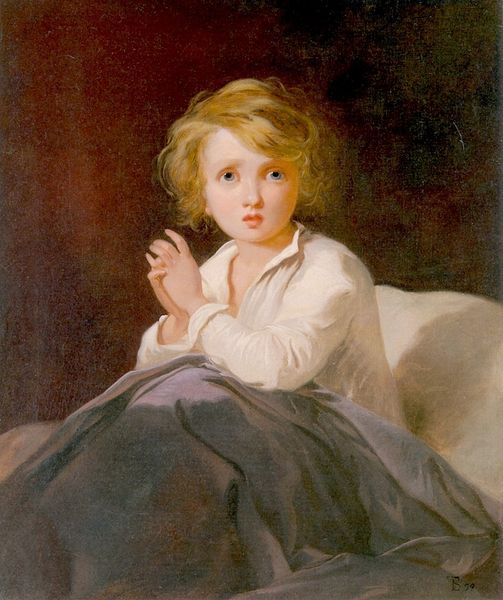
painting, oil-paint
#
portrait
#
neoclacissism
#
painting
#
oil-paint
#
oil painting
#
romanticism
Copyright: Public Domain: Artvee
Elisabeth Louise Vigée Le Brun, a rare woman artist admitted to the French Royal Academy, painted this oil on canvas portrait of a young boy named Michel. Here we see the conventions of late 18th-century French portraiture with its emphasis on the softness of skin and the loose, classical drapery. But consider the institutional context in which it was made. The Royal Academy, though officially open to all, was dominated by men who promoted a hierarchical system that gave precedence to historical and mythological painting. Vigée Le Brun made her living from portraiture, becoming the official painter of Queen Marie Antoinette. We see her carving out a space for herself and other women, and helping to shape new tastes in French society. Understanding the social conditions that shaped this work requires close examination of the Academy's records, portraits, and other documentation, including the artist's own memoirs. By understanding this history, we can reflect on the meaning of art as something deeply embedded in the social and institutional context of its time.
Comments
No comments
Be the first to comment and join the conversation on the ultimate creative platform.
